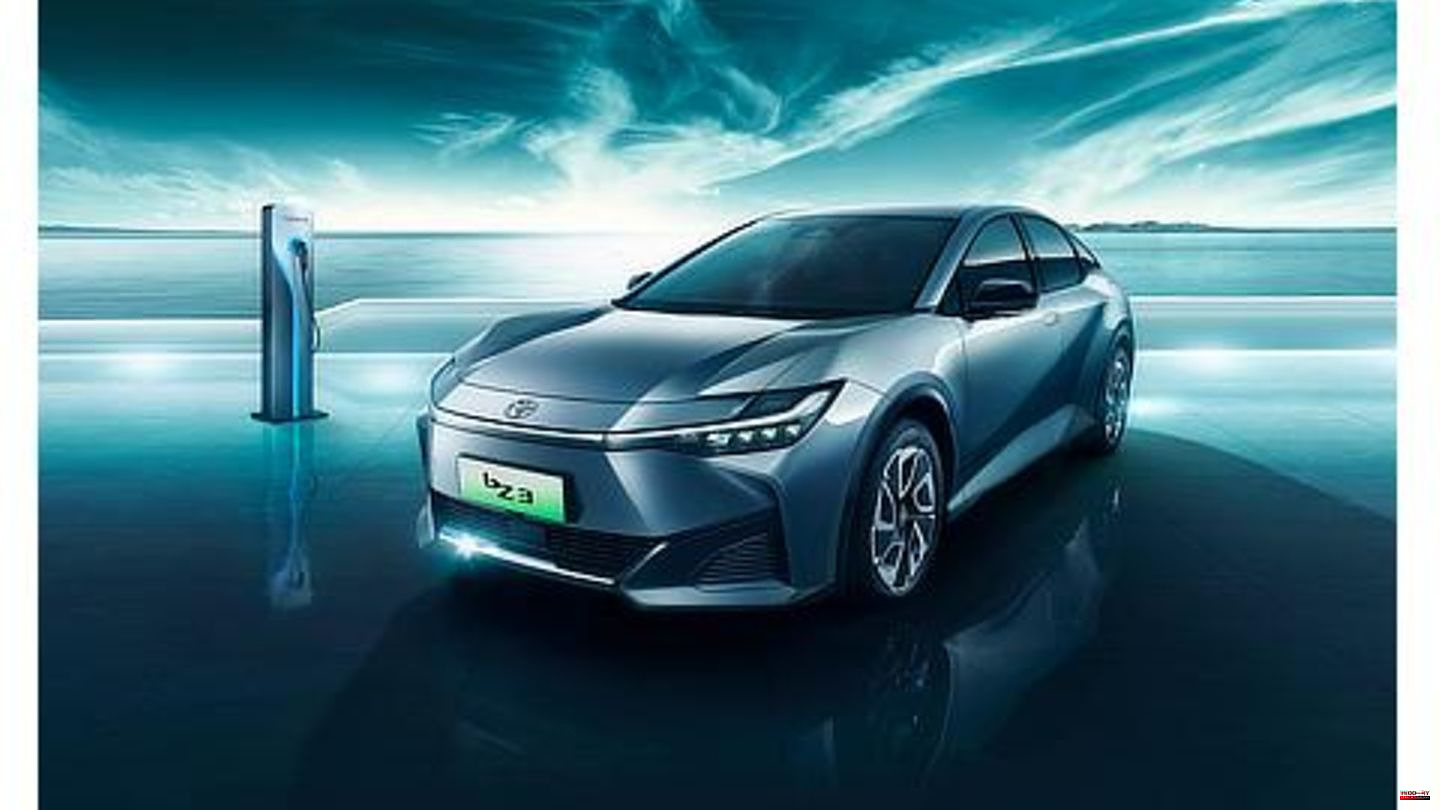With the bZ3, Toyota is taking another step in the direction of electromobility. The sedan presented on Monday is to be launched as the second model in the bZ series in China. During development, over 100 engineers from the Japanese carmaker worked with colleagues from Chinese electric carmaker BYD and FAW Toyota, the Chinese subsidiary of Toyota, to create an electric car with "a completely new structure and design".
The built-in lithium-ion LFP battery comes from BYD, Toyota's electrification technologies. Efforts have been made to reduce the degradation of the battery, i.e. the loss of performance. According to a press release, the development goal is to still be able to guarantee a capacity of 90 percent after two years. The angular electric sedan should therefore travel more than 600 kilometers with one battery charge.
With a length of around 4.73 meters and a width of around 1.84 meters, the vehicle has a specified Cd value of 0.218. It relies on a large vertical display in the form of a tablet, which can be used to operate the music and air conditioning as well as the trunk release. Voice control is possible and a smartphone is also compatible.
The bZ3 is based on the in-house e-TNGA platform - just like the crossover bZ4X, which was launched at the beginning of the year. The driver's position is designed to help reduce muscle strain while driving. Ultimately, the E-model is intended to offer drivers "a new kind of automotive experience". Toyota has not yet said when it will be launched on the Chinese market and at what price.
However, the number of electric vehicles in the Toyota range is fairly manageable with only one fully electric car to date. In fact, the $38 billion electromobility plan that the Japanese announced just last year is by no means going as planned. This is reported by Reuters, citing four people familiar with the matter. According to the news agency, Toyota is now completely changing its strategy and has stopped several of its 30 vehicle electrification projects.
According to this, a working group within the company should work out improvements to the EV (electric vehicle) platform or design a new architecture by the beginning of next year. e-TNGA was presented in 2019 and envisages that electric cars as well as petrol and hybrid cars can be produced together - however, Toyota could not do justice to the sales of the electric car market with the platform.
The market launch of vehicles already planned at Toyota could be delayed due to the upheaval in the e-car strategy. At the same time, the Japanese could withstand the competition better with a more efficient production process. And this lies above all in Tesla.
The change in strategy is due to the great pressure from the US car manufacturer, which is pushing electromobility at a fast pace. Accordingly, the world's largest automobile manufacturer fears losing the battle over production costs against Tesla.
"What drives Mr. Terashi's efforts is the faster-than-expected EV launch and rapid adoption of cutting-edge innovations from Tesla and others," said one of the people about Shigeki Terashi, who leads Toyota's EV review. Terashi himself did not respond to a request for comment from Reuters.
In order to reduce production costs, Toyota should look at processes that Tesla is already using. For example, the Japanese are considering introducing Tesla's so-called Giga Press, a large casting machine that has streamlined work at Tesla plants. The thermal management of an e-car is also currently being tested at Toyota: For example, the air conditioning of the passengers and the temperature control of the electric drive train could be combined, as Tesla is already doing. This could significantly reduce the size and weight of a traction battery, resulting in cost savings of thousands of dollars per vehicle.
Toyota has now understood that the market leader Tesla is a serious competitor - unlike a decade ago, when the Japanese carmaker took a stake in the US company before finally giving up the cooperation a few years later.
Sources: Toyota, Reuters







